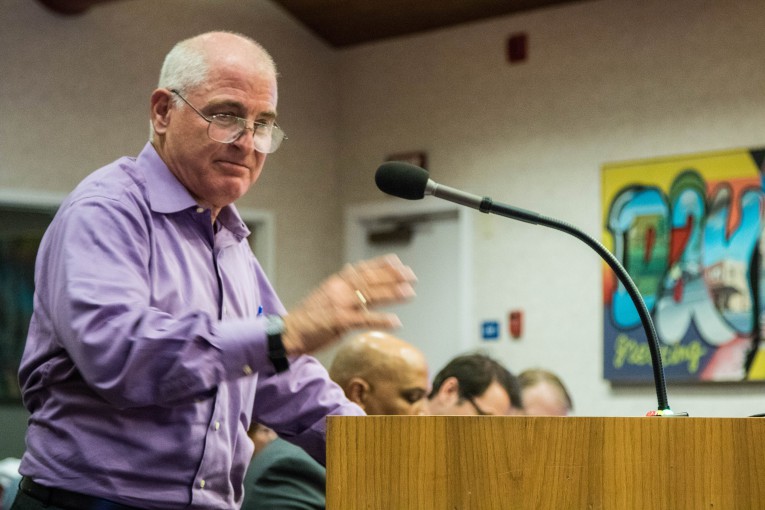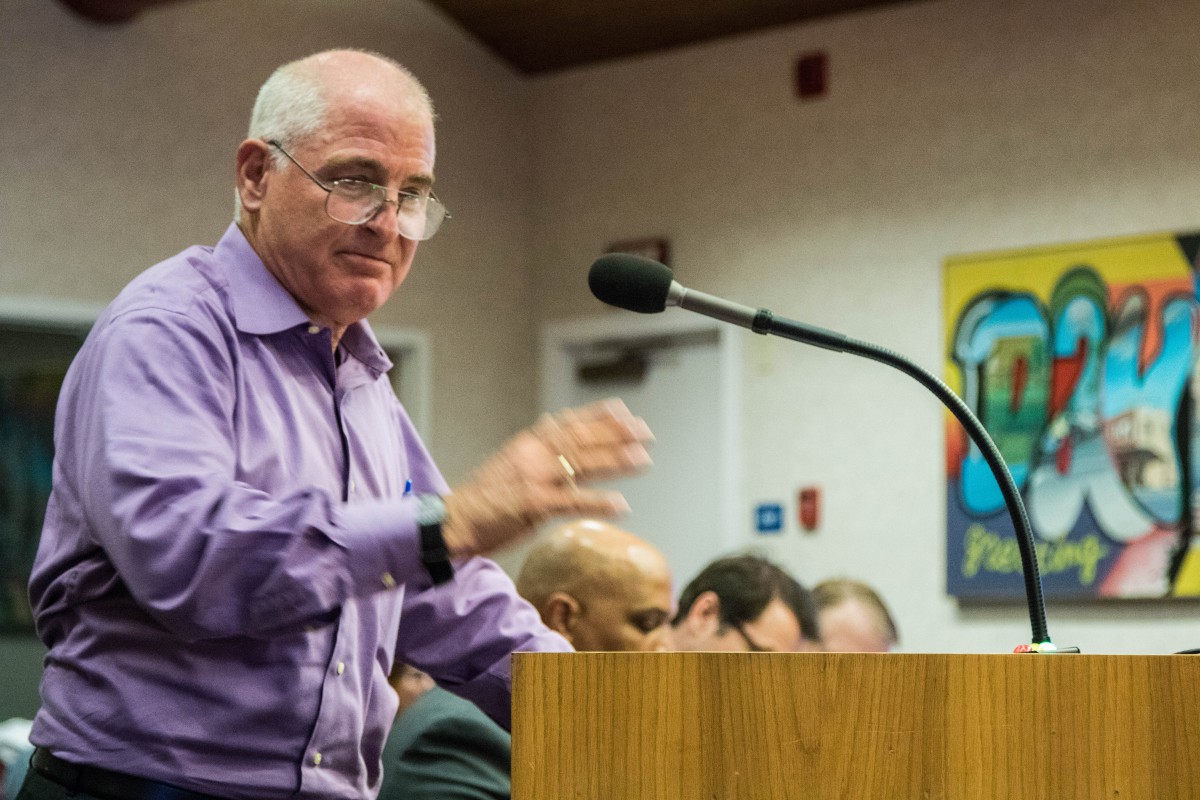

Many feel civic involvement will be hurt by fewer commissions.
By Alan Hirsch
Stop me of you’ve read a Davis story like this before. Or maybe see yourself in it.
On Tuesday 1/30/24 council left largely in place the Chapman/Vaitla plan to reduce the number of city commissions by ¼. At the meeting there was universal public criticism of what many called a proposal to radically reduce civic involvement opportunities. Twenty-two public comments were heard expressing combinations of:
- concern with the policy writing process
- disappointed they were not given a chance to participate
- surprise at results they just heard about
- had suggestion and/or criticism at finalized plan.
Some of the comments were expressed in a high emotion tenor by a resident who felt disrespected after having spent hundreds of volunteer hours in the area and had their  accumulated insight and experience reduced to 2-minute public comment.
accumulated insight and experience reduced to 2-minute public comment.
The council’s defensiveness that resulted from this wave of complaint and critique was also predictable…
I write this acknowledging the wholly good intention of the plan’s authors, and the natural human defensiveness that took over on council that evening that resulted in their circling the wagons—this time defending a compatriot; other times it has been around a staff proposal.
* * * *
This is my critique of the de-commissioning plan—which I acknowledge is biased. (I’m in the story above). You can also read my longer story about the long history of commission reform in Davis in my previous article. I write this as I felt my 2 minutes before council in public comment were inadequate.
The stated goal of the proposal was preparation for a rewrite of the General Plan, but it felt strange to reduce public participation at this moment. The General Plan is about physical stuff, but when many of the changes were unrelated to the General Plan some felt like the goal was in part, at least, to reduce the number of commissions. For example, merging the Utility Rate Commission and the Finance (city budget) Commission or the Art and Human Relations Commissions doesn’t seem to apply to the General Plan.
Mayor Josh Chapman and Bapu Vaitla stated they spent a year of work surveying people. But not one member of the community who they surveyed came and spoke up in support their plan.
The benefit Chapman/Vaitla claimed to their plan was it aligned the commissions with the General Plan section mandate by the states, and gives the commissions “meaningful work.” How merging the Civic Art Commission with the Human Relation Commission (HRC) made sense due to radically different subject matters was never clear nor did it make sense reducing HRC at a time with rising anti-LGBT, Muslim, and Jewish hate in the community. The council ultimately withdraw the HRC merger—the only thing changed to the proposed plan.
Some on the council initially stated a concern of the plan’s overarching goal to use the commissions to lead public engagement for the General Plan rewrite. A public commentor, and then Donna Neville, Gloria Partida and Will Arnold also reflected variation on the theme. Concern was noted that the commission requirement act formality under the Brown Act makes creative, open topic discourse illegal and give-and-take dialogue challenging. Others observed commission members self-selected/chosen for technical skills in a particular area (trees, arts, pesticides, bicycle transportation) might not be skillful at public engagement. However, these concerns were lost as council revert to its defensiveness vis-à-vis the public.
Bapu stated in his talking with commissions that he concluded they all lacked direction and he felt they did not have meaningful work to do. He did not explain how this squared with council voting last year to curtail too many overly-long commission meetings.
Prof. John Johnson, a long-time member of the Natural Resource Commission, reminded council it had curtailed commission involvement in most important issues of the day: They passed rules blocking commissions from providing input important issues that council is also working on itself behind doors in an ad hoc committee. For example, it is now against city rules for commissions to independently examine new housing developments where council also has a study committee. Ironically this rule also blocks any committee from discussing their own decommission when they next meet.
The activists who spoke pointed out the subcommittee survey of commissions was skewed as some commissions were struggling to find a quorum as the city has put a hiatus on recruiting new members over the last years, awaiting the decommissioning committee results. Others observed council has removed a number of the most experienced members of the commissions over the last couple years in the interest of diversity.
One part of the proposal is to end the Tree Commission after 60 years by subsuming it into the Natural Resources Commission with is massive charter…which has now expanded its scope beyond environmentalism (biological eco system), to include a technical specialty of managing the 30,000 city trees and adding in a new item: the political-economy issue of “Climate Justice.” The dilution of focus by combining these commissions was a concern noted by many public commentors and not answered by Bapu/Chapman.
The next step seems to be the Chapman/Vaitla subcommittee is now going to meet with commissions/combined commissions to present them their new charter and get feedback.
* * *
All in all, it’s business as usual in Davis politics, with council reacting to criticism (or input), claiming the community’s most active residents don’t represent the silent majority, and the most active and involved members of the community feeling unsupported, unappreciated and disrespected.
This seems another self-inflicted wound by our community to itself. I and others (see the Bright Night letter) have written about how city decision-making processes are not working for anyone. What are the odds of the city getting 2/3 vote to pass a housing tax to subsidize affordable housing, a simple majority to pass a J/R resolution, or even building consensus around a General Plan? Why can’t we figure out how to turn all this civic engagement to something more positive?
There is hope—maybe the new Mental Health Commission can figure out a way to treat our collective insanity, aka doing the same thing over and over.

Excellent article David.
One point that you did not mention is that this heavy handed approach, followed by circle-the-wagons defensiveness is one more self-inflicted wound to the community’s trust in its government at a time (the months leading up to the November Tax Measure vote) when the Council and Staff should be working to build up the community’s trust rather than take an axe to it.
I have personally told several of the Council members that I believe the tax measure is Dean On Arrival unless they do something to address the pervasive distrust that blankets our community.
This is largely a self inflicted wound created by overly risk averse legal advice. Many other communities are able to hold these types of conversations without “violating” the Brown Act. The Council should direct the City Attorney to research this more thoroughly and find solutions already in place in other cities.
The staff appears to have been on a campaign to constrict commissions’ input since the revelation of the problematic decisions made behind closed doors by the Council. Brightnight and the transfer of the DWR franchise are the two most salient examples of missteps pointed out by commissions. Rather than stepping forward with meaningful reforms suggested by commission members, the staff appears to be bent on limiting the voice of critics.